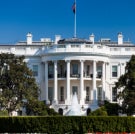Perhaps I should get out more. Over the penultimate weekend before Christmas, I am poring over a spreadsheet that runs for more than 8,000 lines. But it is important to check the working of a campaign group called Transport & Environment (T&E).
You may not have heard of this Brussels-based organisation until this week, when it announced: “The three most expensive rail operators in Europe are the ones operating totally or partially in the UK – Avanti West Coast, GWR and Eurostar.”
The report compared the prices of tickets across Europe. It triggered headlines such: “UK rail fares are now officially the most expensive in all of Europe.”
Given the painfully high cost of travelling in Switzerland, I was surprised by the report’s conclusion. To T&E’s credit, it makes the raw fares data readily accessible.
My first sweep of the research identified a glaring error: a claim that the fare for a mid-afternoon Avanti West Coast train from London Euston to Milton Keynes, booked a week ahead, is £74.90. The actual fare for this 50-mile, half-hour hop: £17.10.
I raised this discrepancy with T&E, which insisted its research was accurate. Victor Thevenet, the rail policy manager and author of the report, told me: “Data collection was carried out in August for September ticket sales. At the time of data gathering, we found prices ranged from £15 to £74.”
This came as a surprise to Avanti West Coast; a spokesperson said: “There has never been a £74.90 fare offered by us between Euston and Milton Keynes.”
As it happens, you could pay £74.90 for a ticket from London to Rugby. That is a scandalously expensive fare, in my opinion, for an 82-mile trip. But that particular journey is not included in the survey.
Mr Thevenet said: “We are doing further checks to certify these prices and we are committed to looking into the data. We will address any potential issues with the utmost urgency.”
Well, on Saturday afternoon I identified another potential issue, and asked the organisation to investigate.
Between Zurich and Winterthur in Switzerland, the standard one-way fare is 13.40 Swiss francs (£12). There is no way of getting a cheaper deal by booking in advance. But according to the T&E survey, the fare is just 6.70 Swiss francs (£6). So what is going on? Well, while I wait for a response from T&E, I surmise that the data assumes that the passenger holds a half-price railcard.
Lots of Swiss travellers own this card, and there is a valuable debate to be had about whether something similar would work in the UK. But if you or I buy a ticket for that Zurich-Winterthur journey, it will cost £12, not £6. Conversely, plenty of British railcards cut the cost of rail travel by one-third, but they are not relevant to this survey.
The report specifies: “We collected only standard fares, simulating one-way trips for a middle-aged individual travelling in 2nd class, without optional seat reservation or subscription.”
It looks to me as if the research has indeed halved the actual cost of travelling on Swiss trains, as well as magnifying Avanti West Coast rail fares by a factor of four.
We all make mistakes. It is possible that I have misinterpreted the data or missed out an obvious way of halving Swiss train fares without a railcard. To minimise the risk of the latter, I have made test bookings through Trainline in the UK and a US-based Swiss rail site. They came up with fares from Zurich to Winterthur equivalent to £12.50 and £12.70 respectively. I could not find any way to make the journey cheaper.
If my research is correct, the report’s claim that “Avanti fares [are] one-and-a-half times more expensive than the average EU/Swiss operator” is plainly tosh. And there is only one possible destination for the T&E report: the bin.
Train travel in the UK is in a mess. A large part of the problem stems from a shambolic fares “system”. But “Europe’s leading advocates for clean transport”, as T&E describes itself, may have caused substantial reputational damage to British rail firms by the use of false data. If so, the organisation must make amends to try to undo at least some of the harm caused.
Simon Calder, also known as The Man Who Pays His Way, has been writing about travel for The Independent since 1994. In his weekly opinion column, he explores a key travel issue – and what it means for you
Source: independent.co.uk



